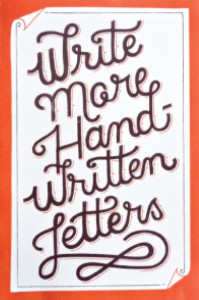Those Good Old Magic Words
Posted: June 12, 2013Let’s start with some givens about nonprofit development.
- It’s tough. Even in the best economy, there are so many worthy causes competing for attention and dollars. In a bad economy – well, you know that reality from living it in recent years.
- Development executives are always in pursuit of donor support. One event ends and no resting on your laurels – or licking your wounds. A new plan for donor engagement must get underway.
- Everyone in the nonprofit world is looking for the magic bullet to raise revenue in the most cost-effective way.

But wait, let’s back up to Point 2, because there is an opportunity implicit in every fundraising event, whether a smashing success or the dreaded flop. It applies regardless of economic climate. And studies confirm its effectiveness: a whopping four out of five donors report it can motivate them to give again*.
Have I piqued your interest?
It’s the art and power of a personal “thank you.”
Oh, we do that, you may be thinking. Everyone who attends our events hears “thank you.” All the executive staff says it; Board members chime in too.
Of course, those verbal thanks matter. Still, as a development consultant, what I see time and again is the missed acknowledgement that conveys gratitude more eloquently – and impactfully – than most of us deliver off the cuff. It’s the written thank-you to donors and, not to be forgotten, guests. Think about it. Which is more likely to prompt further interest in an organization: the memory of a “thank you” or the letter in hand expressing appreciation for participation in a benefit event?
It all sounds obvious, but so often it’s overlooked. In this age of electronic communication, the value – and graciousness – of a written letter, preferably received in the 3-D mailbox, escalates. Yes, it’s a task to craft a great letter and send off each one ASAP. But think of it as Stage 2 of any fundraising effort. Instead of planning the next event, first build on the previous one. A letter can be standardized to an event, then individualized with personal elements – including, recommended by research, a real signature, not digital. The goal is to recognize your organization’s supporters and underscore how they make a difference to your cause.
What motivates a person to give may be as diverse and complicated as the human mind, heart and ego. Yet never underestimate the fundamental desire to feel appreciated. We learn early in life that certain “magic words” go a long way in getting along with others. Discover how reciprocal generosity can be by being generous in your thanks!

